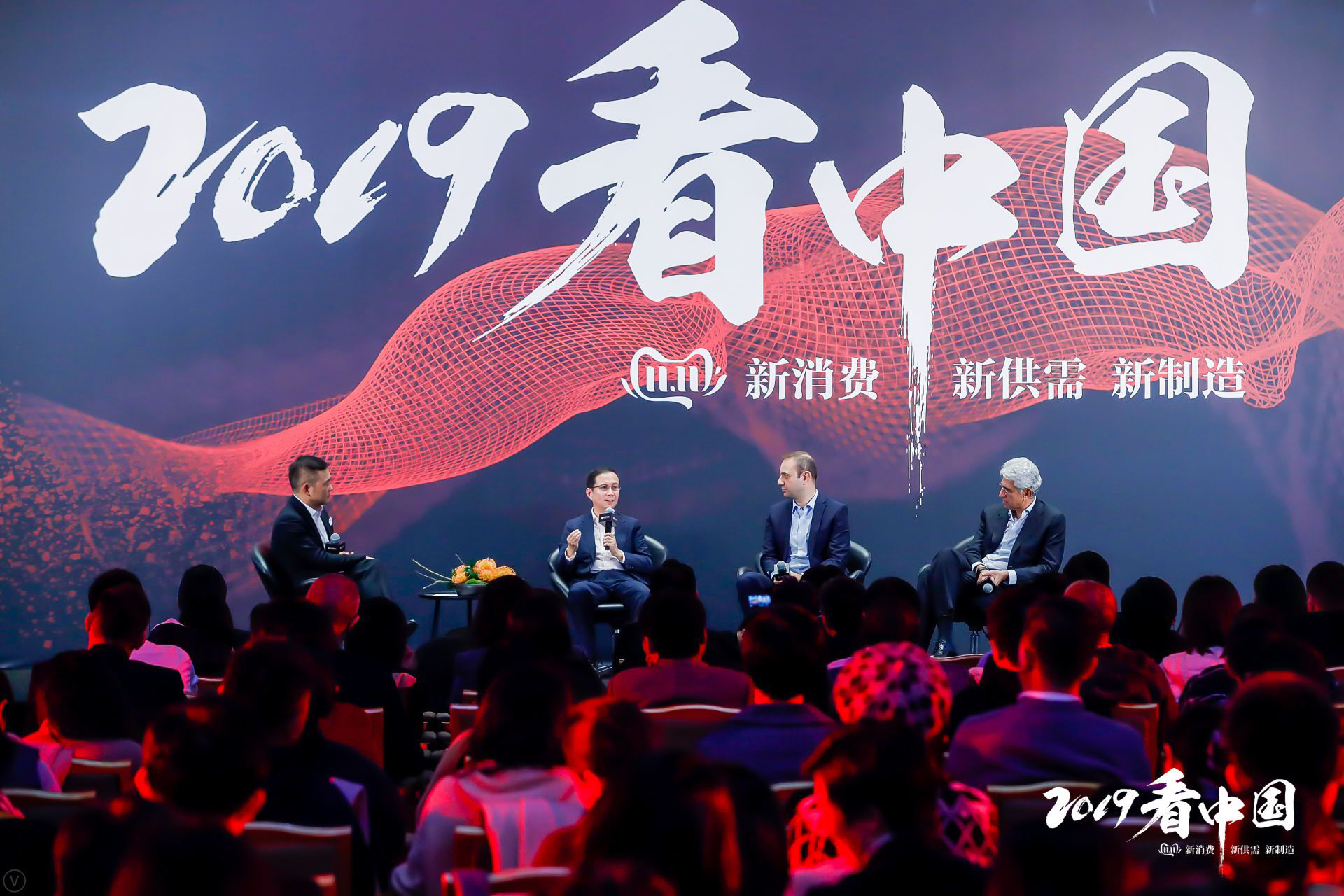
As always, the 11.11 Global Shopping Festival this year delivered big numbers: gross merchandise volume at RMB268.4 billion ($38.4 billion), up 26% from 2018; 1.3 billion delivery orders; a record 200,000 participating brands; and 1 million new products.
But what drove those numbers?
“New consumption patterns, new brands, emerging e-commerce shopping demographics and new shopping experiences,” said Alibaba Group Executive Chairman and CEO Daniel Zhang.
Zhang’s comment came during the annual Observing China Forum in Beijing on Thursday, where top executives from Alibaba, L’Oréal, Nestl√©, Yum China and Bain shared insights into 11.11 and their experiences chasing the most sophisticated consumers in the world. Hosted by AliResearch and Peking University, the forum brings these executives together with prominent scholars and industry thought leaders to reflect on China’s consumption landscape and to recap learnings from 11.11, just a few days after the world’s biggest shopping festival.
Here are some key takeaways from the event:
11.11 Showcases the Capability of Alibaba’s Commerce Infrastructure
Even among the superlative figures associated with 11.11, Zhang focused on one in particular: 544,000 orders per second created during the busiest part of the day. “This number demonstrated Alibaba’s technology capability, which enabled six stadiums of people to place orders within one second and process the right orders according to real-time inventory,” he said. “Digital technology reconstructed the foundation of commerce, making the impossible possible.”
Brands Learn About Consumer Engagement, Innovation and Team-Building
L’Oréal Paris was the top beauty brand as measured by GMV on 11.11, and fellow L’Oréal Group brand Lanc√¥me ranked second in the category. “If 11.11 is the Olympics of commerce, L’Oréal [Paris] is very proud to be the gold medalist of beauty,” said Fabrice Megarbane, president and CEO of L’Oréal China, during a panel at the Observing China Forum. “Our winning secret is constantly satisfying consumers’ desire with our DNA – innovation. One great example is our partnership with TMIC [Tmall Innovation Center] to analyze and understand what consumers would like to have and which enabled us to co-create the L’Oréal Paris Midnight Cream for Chinese consumers. This is what the future is all about,” he said. The midnight cream was launched in September through Tmall’s product-debut tool, Hey Box, after just 59 days of development, and 80% of customers who bought this product were new to the brand.
Nestl√© was another brand that shared their learnings from 11.11 this year. Team building was one lesson highlighted during a panel by the company’s chairman and CEO for the Greater China Region, Rashid Qureshi. In the months leading up to 11.11, all departments from the company, from supply chain to consumer communications, have to prepare together and coordinate their operations for the event. Qureshi showed the audience how Alibaba’s enterprise chat app, DingTalk, was instrumental in digitizing the company’s concerted efforts on 11.11 and allowed him to monitor the number of packages delivered by Cainiao in real-time. “We have had quite a success on 11.11,” Qureshi said. “This year, our 11.11 GMV was in the billions. We learned quite a lot about consumer engagement. 11.11 is also a great platform for team building. There is no better platform to celebrate our success together.”
Local Services Empowering a Sector New to 11.11
This year, the integration of additional New Retail businesses, such as local services, allowed the restaurant sector in China to participate in 11.11. KFC was the first restaurant brand that joined the RMB100 million GMV club this year, which included a total of 299 brands.
The CEO of Yum China (the parent company of KFC and Pizza Hut), Joey Wat, said the company experimented with Tmall and Ele.me in offering co-branded, prepaid cards and coupons during 11.11, expanding consumer spending beyond the perishable food orders within a single day. Overall, the company was satisfied with its 11.11 results, as half of its customers during the day were new to KFC. Yum China currently operates over 9,000 locations, with more than 230 million digital members for its loyalty programs in China.
Green Logistics Still a Focus
With all of those delivery orders created during 11.11, green logistics is a focus for Alibaba and its brand partners. Zhang expressed the need for Alibaba to be a leader when it comes to sustainability in China and highlighted the 75,000 recycling stations set up by Alibaba’s logistics arm, Cainiao, and its delivery partners. This year, nearly 40 brands on Tmall, including L’Oréal and Giorgio Armani Beauty, have opted into using eco-friendly packaging materials, such as those that don’t require sealing tape. L’Oréal had delivered about 5 million green packages within the first two days after 11.11, according to Megarbane. When asked what they’d like more of from Alibaba, Nestl√©’s Qureshi said the two companies needed to work together to put greater focus on sustainability and reduce the use of plastics in e-commerce.
What Is the Future? Made for China
With China on track to become the world’s largest and the most sophisticated consumer market, how can international brands capture this opportunity? Bain & Company Managing Partner Manny Maceda provided the answer during the last panel: “In order to succeed in China, brands have to design products specifically for China market, make decisions locally, deliver in ‘China speed’ and digitalize China business.”




